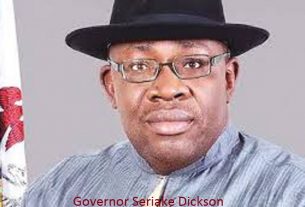The chairman of the Independent National Electoral Commission, INEC, Prof. Mahmood Yakubu, has said that the commission did not receive any direct funding or cash support from international development partners.
He said the clarifications became necessary to correct the impression that the commission received funding support from development partners for the 2023 general election.
He spoke on Monday at a meeting with Civil Society Organisations (CSOs) in Abuja, as part of the commission’s post-election review.
“It is necessary to seize this opportunity to correct the impression in some sections of the public that the Commission received huge sums of money from development partners for the election,” he said.
Yakubu said it was the commission’s policy not to receive direct funding or cash transfers from sources other than the federal government.
According to him, the support received from international partners came in the form of technical advice, civic and voter education, organisation of meetings and capacity-building workshops, as well as the publication of documents.
“On the contrary, and for the avoidance of doubt, the Commission did not receive any direct funding or cash support from international development partners. Rather, their support was totally indirect through civil society organisations and implementing partners working on elections.
“Indeed, it has been a longstanding policy of the present Commission not to receive direct funding and cash transfers from sources other than the federal government of Nigeria.”
Election observer reports
Meanwhile, the INEC chairman said the commission received 538 requests –504 domestic and 34 foreign– for accreditation as observers in the build-up to the 2023 elections.
However, only 228 election observer groups fulfilled the requirements and were accredited by the commission, he said.
Out of the 228 groups, only 67 of them have submitted their reports to the commission. They include 62 domestic observer groups and five foreign observer groups, representing only 30 percent of the accredited groups for the election.
“We urge all accredited observer groups that are yet to submit their reports to do so in earnest,” he said.
“For the 2023 General Election, the Commission received 538 requests (504 domestic and 34 foreign) for accreditation as observers. After a thorough evaluation of the requests, only 228 groups (190 domestic and 38 foreign) met the requirements for accreditation.”
Yakubu, therefore, appreciated the CSOs and development partners for their support during the 2023 elections.
Post-election review
The post-election review, which began three weeks ago, focuses on all aspects of the electoral activities before, during, and after the polls through “introspection, stocktaking, review, and evaluation,” according to the INEC chairman.
“This is one of the best ways to continue to improve the electoral process. As I said on several occasions since we commenced the review meetings three weeks ago, the Commission welcomes diverse opinions about the election insofar as their purpose is to improve the future conduct of elections and to consolidate our democracy,” he said.
As part of the review, the commission has met with its Resident Electoral Commissioners (RECs) from all 36 states and the Federal Capital Territory (FCT), Electoral Officers, and transport union workers.
The commission will meet with political parties on Tuesday, Media editors on Wednesday, and the Inter-agency Consultative Committee on Election Security (ICCES) on Friday.
Premium Times





